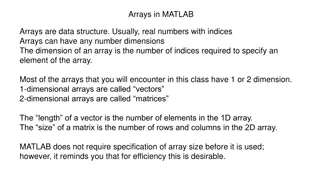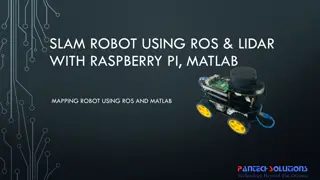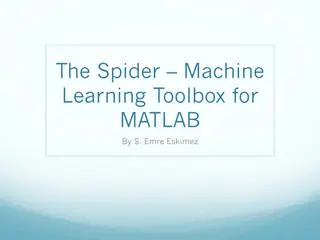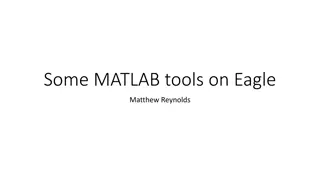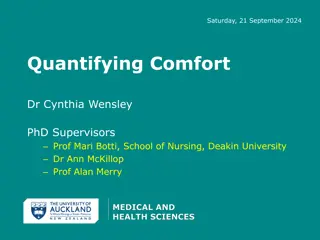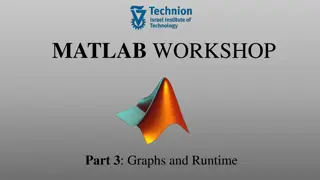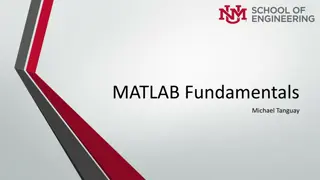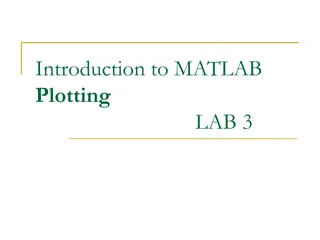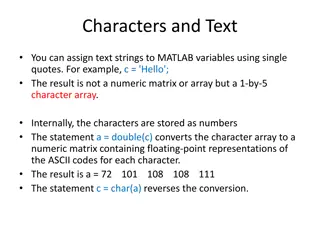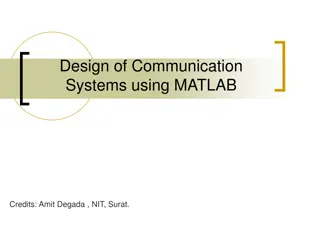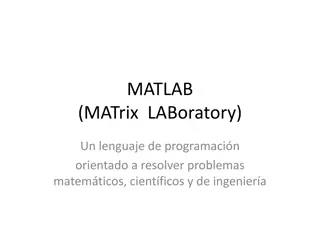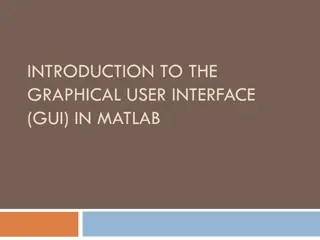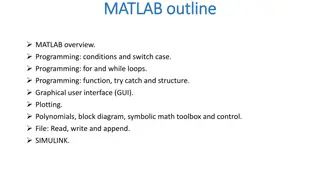Building Comfort With MATLAB: Practical Strategies for Effective Learning
Discover the keys to building comfort with MATLAB for scientific computing, outlined by Wendy Thomas, an Associate Professor of Bioengineering at the University of Washington. From teaching experiences to software support, motivation, learning objectives, and scientific computing skills, learn practical strategies to enhance your MATLAB proficiency and problem-solving abilities.
Download Presentation

Please find below an Image/Link to download the presentation.
The content on the website is provided AS IS for your information and personal use only. It may not be sold, licensed, or shared on other websites without obtaining consent from the author.If you encounter any issues during the download, it is possible that the publisher has removed the file from their server.
You are allowed to download the files provided on this website for personal or commercial use, subject to the condition that they are used lawfully. All files are the property of their respective owners.
The content on the website is provided AS IS for your information and personal use only. It may not be sold, licensed, or shared on other websites without obtaining consent from the author.
E N D
Presentation Transcript
Building Comfort With MATLAB Wendy Thomas Associate Professor of Bioengineering University of Washington 1
My Teaching Experience Bioen 201 (2008 2010) sophomore core: intro to mathematical programming (5 weeks) and circuits (5 weeks) Bioen 485/585 (2004 2016) senior + graduate elective: computational differential equation modeling for bioengineering Bioen 503 (2010 2013) graduate core: systems bioengineering (analytic and computational systems models) 2
Keys to Building Comfort With MATLAB SOFTWARE SUPPORT hands-on support in front of the computer (lab, class or office hours with laptops or in computer lab) Peer tutoring/workshops are great! tutorials (linked online or made just for the course, but should get student from ground zero to the first assignment) Practice 3
Keys to Building Comfort With MATLAB Each activity requires: MOTIVATION Task should be easier to perform in MATLAB than in common alternatives (calculator, EXCEL), even at this stage of experience. Task should relate to something of value (course content or common experiences) LIMITED LEARNING OBJECTIVES Identify a limited set of computing concepts and MATLAB tools that are easy to learn at this stage of experience Don t let students spend hours on something unrelated to the objectives. Jump start by providing needed resources such as: Pseudo-code activity to help design algorithm sample commented code for related problem Tutorial-like part 1 followed by independent part 2 4
Comfort With What? Key scientific computing skills: INTRODUCTORY SKILLS: Arrays & algebra Scripts & functions, Plots Flow control Basic input/output INTERMEDIATE SKILLS: Use documentation to learn new skills Debugging More input and output common functions: fminsearch, ODEs, statistics, visualization tools, etc, ADVANCED SKILLS: Algorithm design Data structures (e.g. Structures(1).awesome) GUI design Advanced visualization tools Reliability tools (version control, visual checks of analysis, etc.) 5
Set Expectations Designing algorithms Move from cook book labs to independent thinking Debugging Test hypotheses to divide and conquer Much more efficient than experiments to teach logic 6
Lesson 1 Motivation: MATLAB is easier and more reliable for moderately complex calculations and for plotting functions. Learning Objectives: command line and scripts Simple syntax Arrays Plot command Maybe: Input (load) Activity examples: plot how an algebraic expression changes with one or more parameter values to explore an equation from class Plot and analyze data from a wet lab Plot and analyze a provided data set 7
Lesson 2 Motivation: MATLAB helps with data analysis Learning Objectives: Input and output data Flow control Look up and call functions Activity Process long data set obtained in a lab to make calculations. Long time series data are great for this. My class: calculate viscoelastic properties of material from repeated stress cycle data. 8
Lesson 3 Motivation: MATLAB provides flexible fitting of models to data Learning Objectives: Write functions fminsearch Activity Test hypotheses to relate experimental data to concepts in class. My class: drug delivery nanoparticles 70 40 120 35 60 30 100 30 50 25 80 20 40 20 60 30 15 10 40 20 10 0 20 10 5 0 -10 0 0 0 10 20 30 0 10 20 30 0 10 20 30 0 10 20 30 9



